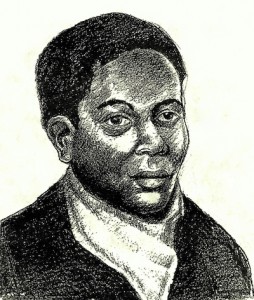By Johnnie Monroe
This year — 2017 — the Synod of the Trinity is celebrating 300 years of ministry. Praise God!! However, this celebration will be incomplete without the inclusion and recognition of the presence, the contributions, the witness and the ministry of African-American Presbyterians in and to the Synod.
For 210 years, beginning in June 1807 with the founding of First African Presbyterian Church in Philadelphia, African-Americans have been a presence — not always a welcomed presence — but a presence nonetheless within the Synod.
African-American Presbyterians were organized by the Rev. John Gloucester. In an article celebrating 200 years written by Dr. Gayraud S. Wilmore on the occasion of the bicentennial of Black Presbyterians for the 2007 Black Presbyterian Caucus meeting in Philadelphia, he wrote:
“The pastor of Philadelphia’s Third Presbyterian Church (now Old Pine Street), Archidald Alexander, decided it was time to create an African church in the Reformed family. At the 1807 General Assembly he met Gloucester, a slave and body servant of Gideon Blackburn. Impressed with Gloucester’s unusual gift as a preacher, Alexander persuaded Blackburn to bring him to Philadelphia to look over a field “white unto harvest.”
That spring, Gloucester began preaching on a vacant lot in South Philadelphia. His fine baritone voice resounded through the mean streets and alleys of the ghetto as he told the story of Jesus. His work led to the creation of First African Presbyterian Church, with 22 members in June 1807. The congregation received its charter from the Pennsylvania Supreme Court on Dec. 12, 1809 but was not accepted as a mission congregation by Philadelphia Presbytery until Oct. 16, 1811.
Known for its witness in Christian education and social welfare, the congregation suffered from the time and energy Gloucester had to expend on the road. He traveled between Philadelphia and Tennessee to qualify for a license to preach and to various cities to beg money for his congregation. He also had to raise $1,500 to purchase the freedom of his wife, Rhoda, and their four children who remained in slavery until 1811.
When Gloucester died in 1822, the congregation numbered about 300.
From the beginning of First African Presbyterian Church in 1807, a number of Black Presbyterian churches were founded within presbyteries of the Synod of the Trinity for ministry among and to African-Americans. Among those churches are:
- Berean Presbyterian Church, Philadelphia
- Bethel Presbyterian Church, Philadelphia
- Reeves Memorial Presbyterian Church, Philadelphia
- Lombard Central Presbyterian Church, Philadelphia
- Fifth Presbyterian (now Thomas M. Thomas) Presbyterian Church, Chester
- Second Presbyterian (now closed), York
- Grace Memorial Presbyterian Church, Pittsburgh
- Bidwell Street Presbyterian Church, Pittsburgh
- Bethesda Presbyterian Church, Pittsburgh
- Washington Street Presbyterian Church, Reading
- Shiloh Presbyterian Church, Coatesville
- Second Presbyterian Church, West Chester
- Capital Street Presbyterian Church, Harrisburg
There were several African Americans who made contributions to the Synod as staff persons. The first such person was the Rev. Dr. Shelton B. Waters, Director of Church and Community. Following Dr. Waters, there were:
- Elder Robert Coleman, Director of Church and Community and later Racial and Social Justice Ministry Unit
- Elder Eileen Foster, Interim Director, Social and Racial Justice Ministry Unit
- Rev. Brenda Brooks, Director, Racial and Social Justice Ministry Unit
- Rev. Dr. Johnnie Monroe, Director, Evangelism and Church Development
Several African-Americans served as moderator of the Synod:
- Elder Florence Johnson, Pittsburgh
- Rev. Dr. J. Jerome Cooper, Philadelphia
- Elder Barbara Adams-Smelter, Philadelphia
- Rev. Joseph I Steele, Philadelphia/Chester
- Rev. Dr. Johnnie Monroe, Pittsburgh
Numerous African-Americans served as chairpersons and members of committees and units within the Synod over the years.
In the late ’80s and early ’90s there were Synod programs designed for African-Americans that impacted the ministry and witness of African-American Presbyterians. Two such programs were the African-American Leadership Retreat designed to equip pastors and officers and Presbyterian African-American Youth and Family Event (PAAYFE) that took youth and their families away for a time to learn about Christ, community and the church.
As we celebrate 300 years of this Synod’s existence in one form or another — as we celebrate Being More Together — let us honor the life, witness and ministry of African American Presbyterians — Lest We Forget!

